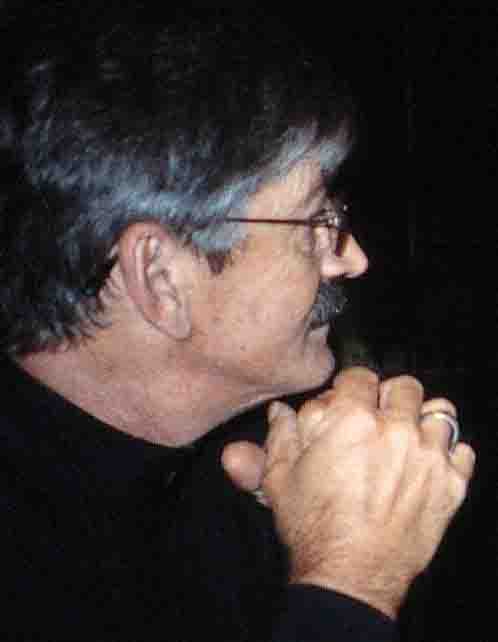Karl had a hard life and was, by nature, private, pessimistic and suspicious.
Once, when he is struggling, I suggest the practice of gratitude as an antidote to his chronic depression and recommend he try Martin Seligman’s Three Blessings gratitude exercise. Unknown to me, he does that exercise off and on for several years. Reading his journals after his death touches me because of the simplicity of the blessings he identifies. He had so little; he left so little behind – in a material sense.

I find great consolation in the legacy of Karl’s few written words.
Karl had simple tastes and pleasures that he was grateful for. He never expected to live to middle age. For him, every day was a gift. He often commented simply in his journal in words like this: “I love my Wadie” or “things are going great with Wadie now she’s no longer missing” (his word for travelling).
Karl’s Simple pleasures
Here is a list of the pleasures Karl identifies in a burst of journal writing in early 2012:
- there was sunshine to replace the rain
- my dinner was appreciated
- Wendy and I had a funny walk, and that went well
- I had a nice start to the day
- my writing went well
- my cake turned out great
- Wadie is great
- the stories we are writing for the professional ethics manual are great
- good soup
- Wendy great
- a great day just doing odd jobs
- love Wadie
- the roast chicken is great
- good day welding
- brilliant fire in the chiminea
- found the paint job slow but ok
- Guy [the kookaburra] came back, and I fed him
- finally got some firewood: great; lovely day, lovely wife, delightful food
- a great day full of sunshine
- our counselling session was great
- Wendy is great
- loving Wadie is great
- yay for the return of Wadie.
Karl waxing lyrical

Karl was a tough, crusty, no-nonsense, working-class man, a welder-boilermaker by trade. A solitary man of few words. He’d been abandoned, mistreated, misjudged and educated in the harsh realities of the school of hard knocks.
And he was profoundly reflective, a natural philosopher and a real softie at heart.
Occasionally, Karl would wax lyrical in his journal about love – and about me. In 1993, a few months into our relationship, he writes this:
Love sure is good for me and life is great. Wadie has so much love she would like to share and give. So do I, come to think of it.
Three days later, he says:
When you are loved, all you are aware of is the love you feel and life’s music – the harmonious flow of energy, the vibrations of the universe.
I smile to read this about his stroppy, middle-aged lover:
Wadie has some amazing qualities, like the change that happens during sex. Her face assumes this innocent and, at the same time, ecstatic expression — something that makes her so open and vulnerable.
When I was “missing” (as he called it) overseas in for a few months in 1994, Karl sends me a few letters and faxes. In one, shortly before our wedding, he tells me how delicious I am and how he loves to listen to the little sighs I make when I am sleeping.
He continues:
Please believe me when I tell you that I might not always be as emotionally expressive as you hope, but the poetry is there in my heart and finds expression in our lovemaking.
Over the years, I’ve spoken a lot to women. About men. And about love. And I’m confident most would agree that words like that can soften a gal’s heart!
When DEath Comes
Because Karl never expected to live past middle age, he spent this life in a state of perpetual amazement. The first time I read Mary Oliver’s poem, “When Death Comes,” I knew it was about Karl:
When it’s over, I want to say: all my life
I was a bride married to amazement.
I was the bridegroom, taking the world in my arms.
